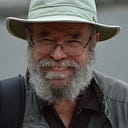I would question whether the two sorts of learning are comparable. In some ancient Greek traditions - as I recall, it has been a long time - there is a distinction made between opinion (doxa) which can be true or false, and a kind of direct-knowing for which the word episteme was sometimes used.
It is - I think it is - the difference between propositional and experiential knowing. That is pretty much exactly what you are talking about, right? And it is a distinction often made in religious discourse between doctrinal knowledge and experiential knowledge-by-participation. For instance, in The Heart of Centering Prayer: Nondual Christianity in Theory and Practice, Cynthia Bourgeault says "From this place it is possible to 'know' by coinciding with reality, not by thinking about it."
One could make a map of Mary's knowledges in which the knowledge-by-experience counter goes up by one while the counters of her theoretical knowledges remain unchanged. But that map would be produced by a kind of "forgetful functor" that ignores what is of value to more of the organism. I would suspect the descriptive knowledge of the apple would not feed, the sight of the apple would promise nutrition, and the eating of it would nourish all parts of her.
